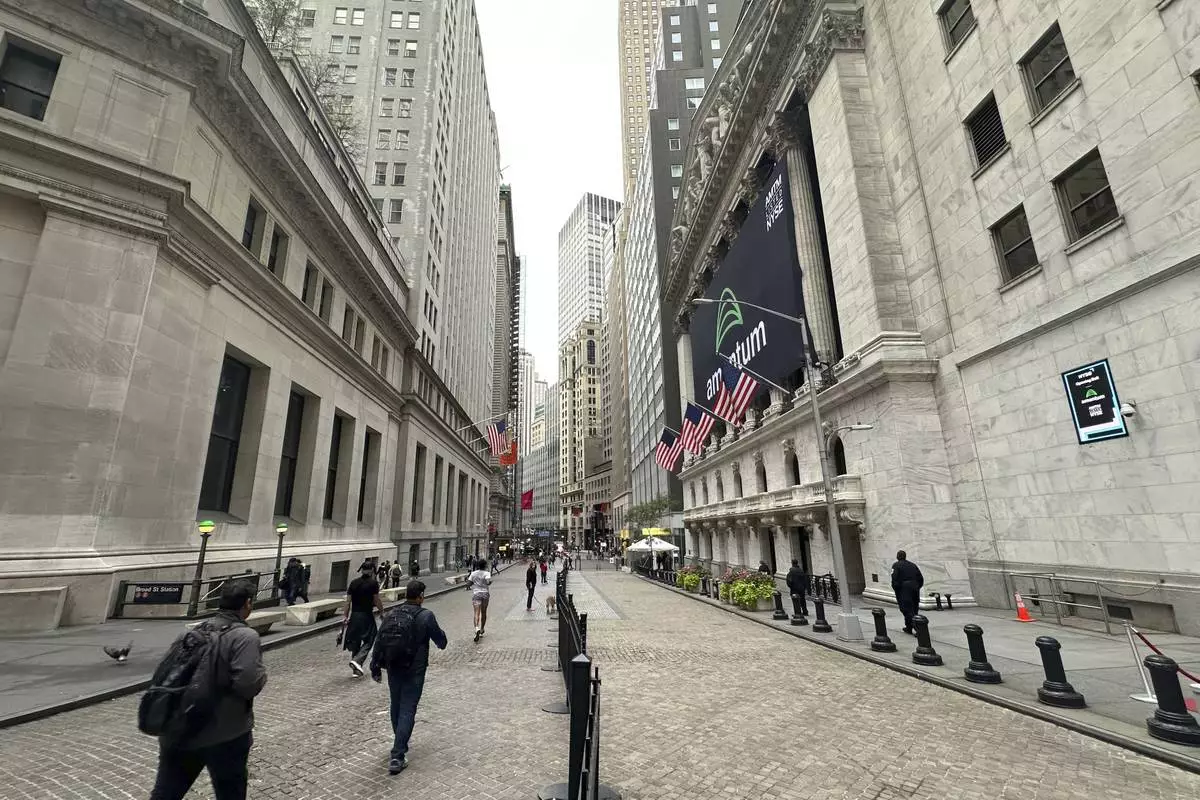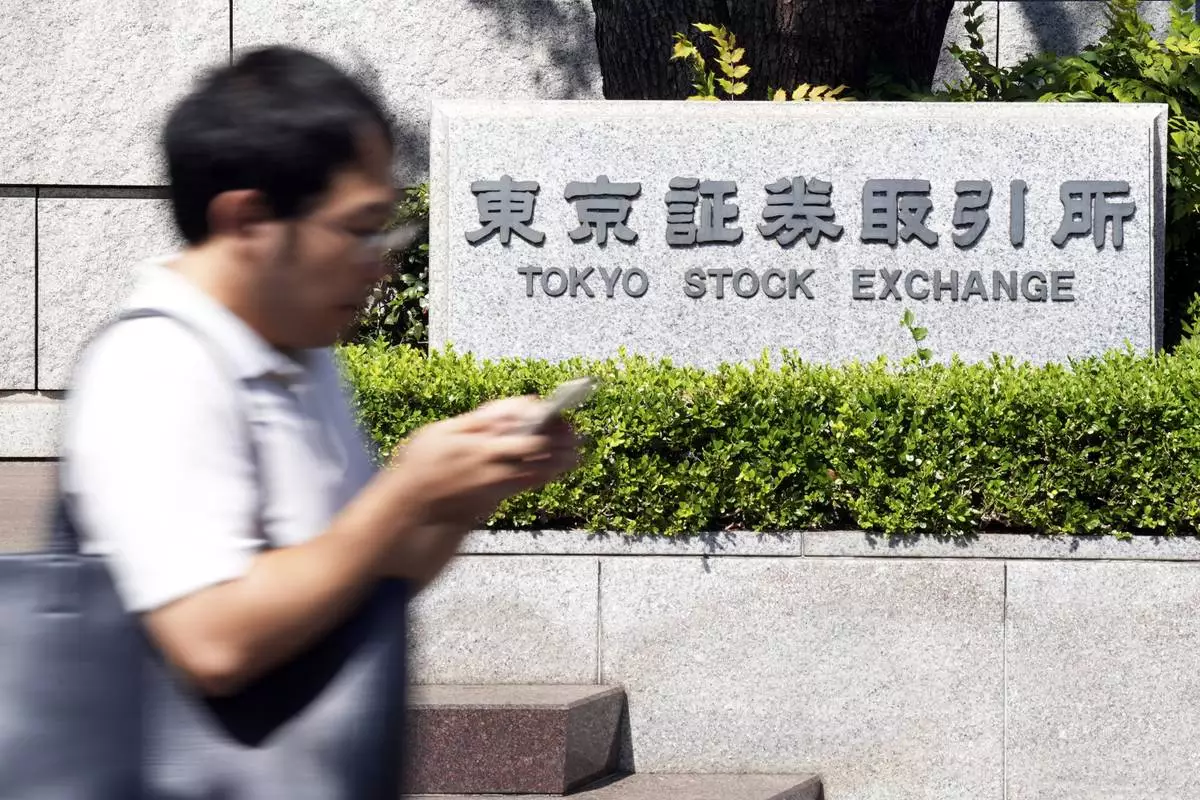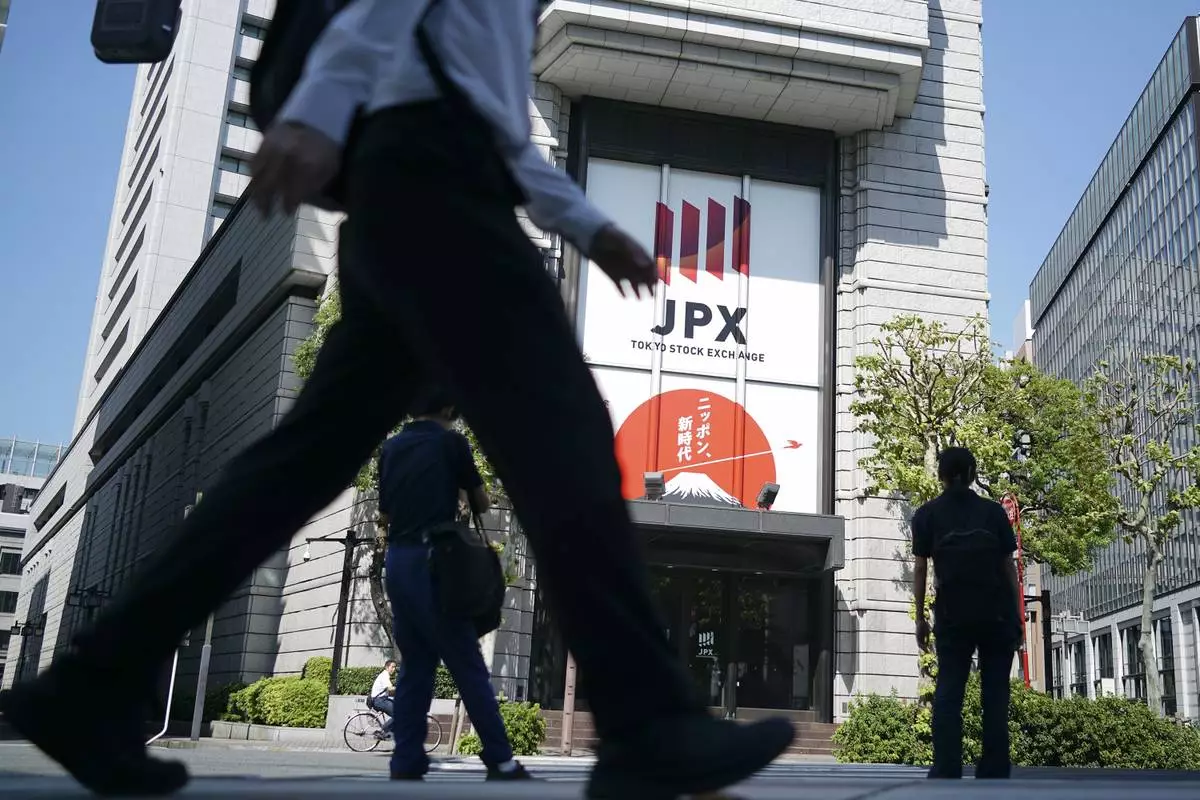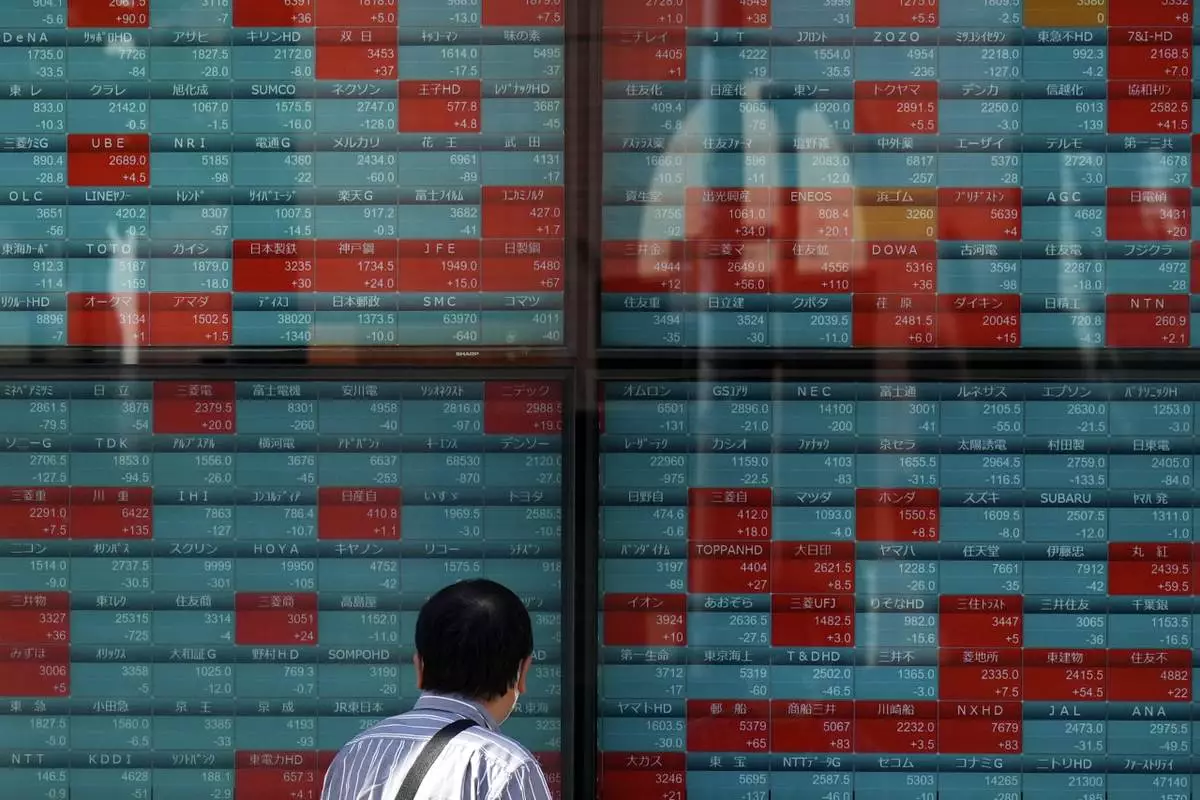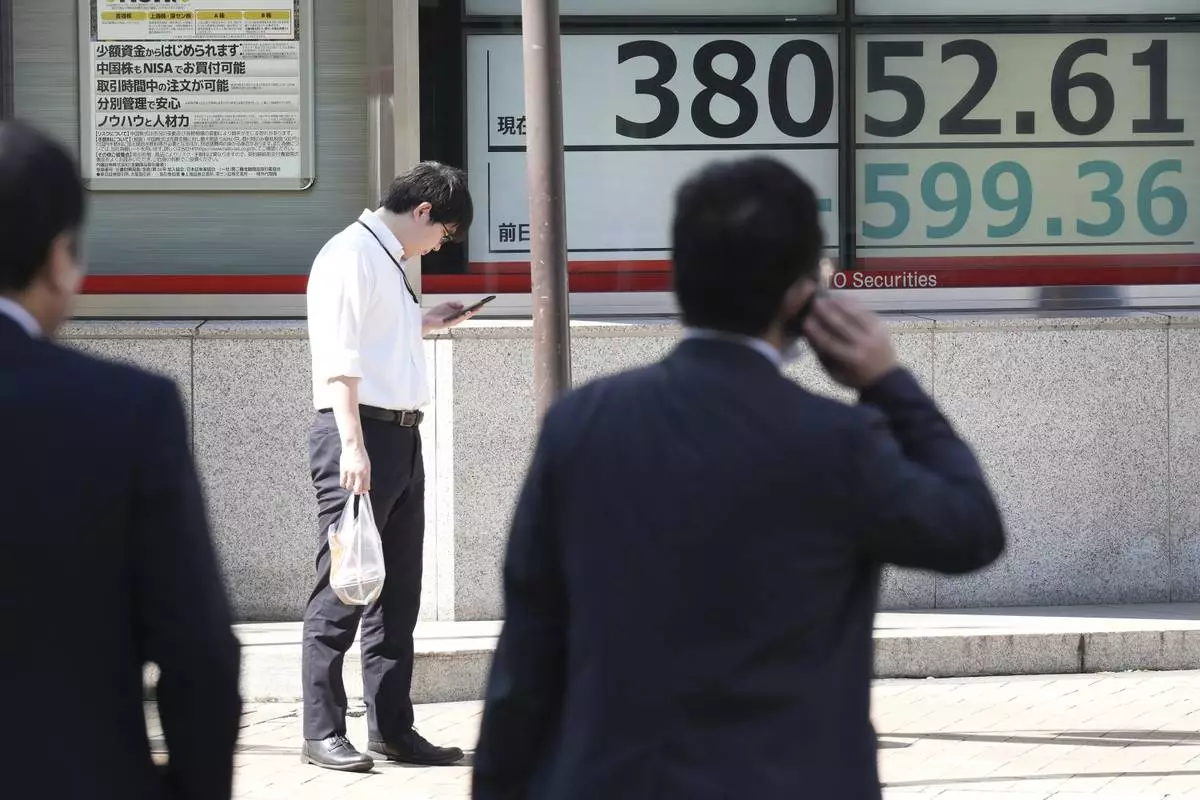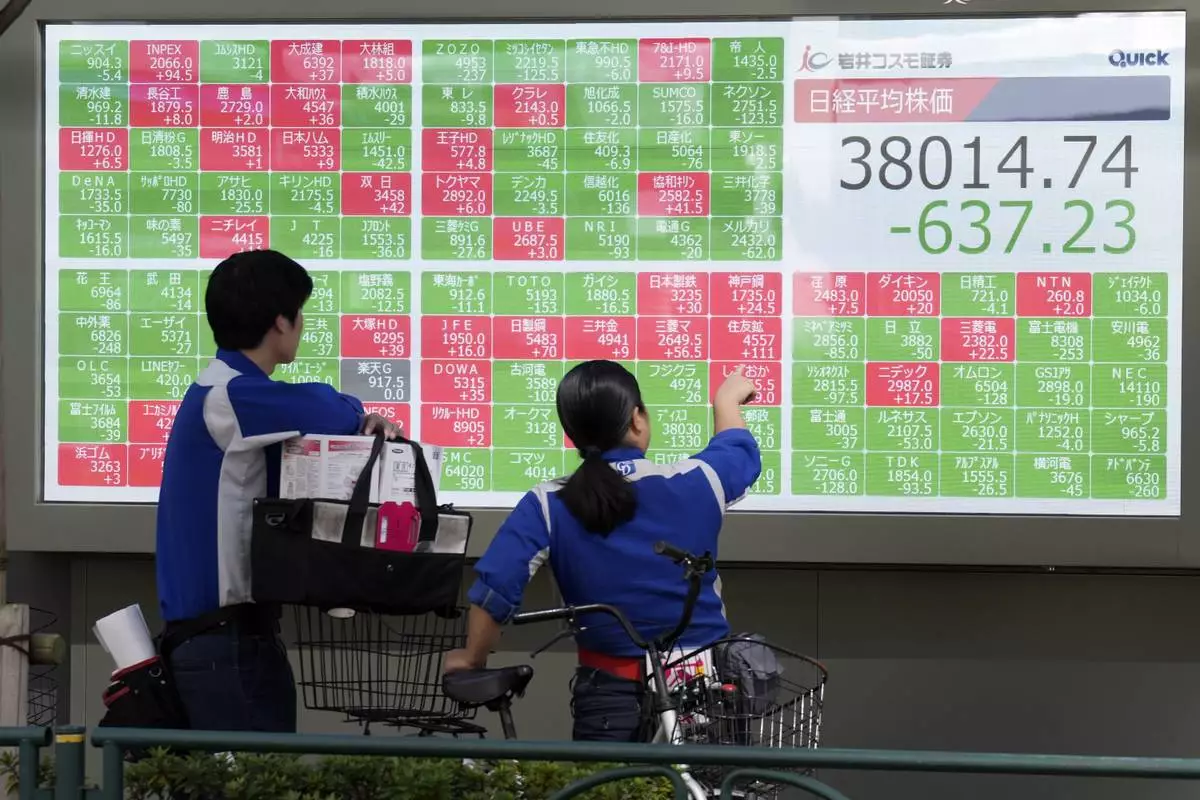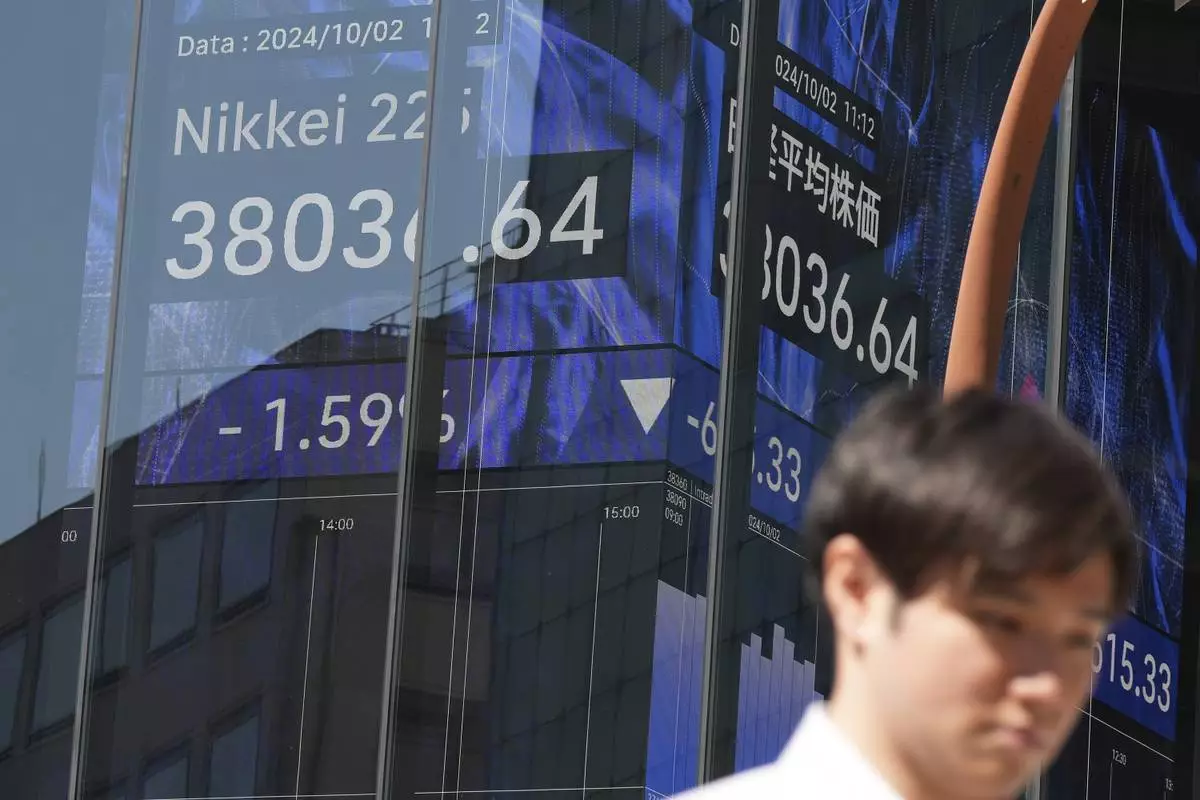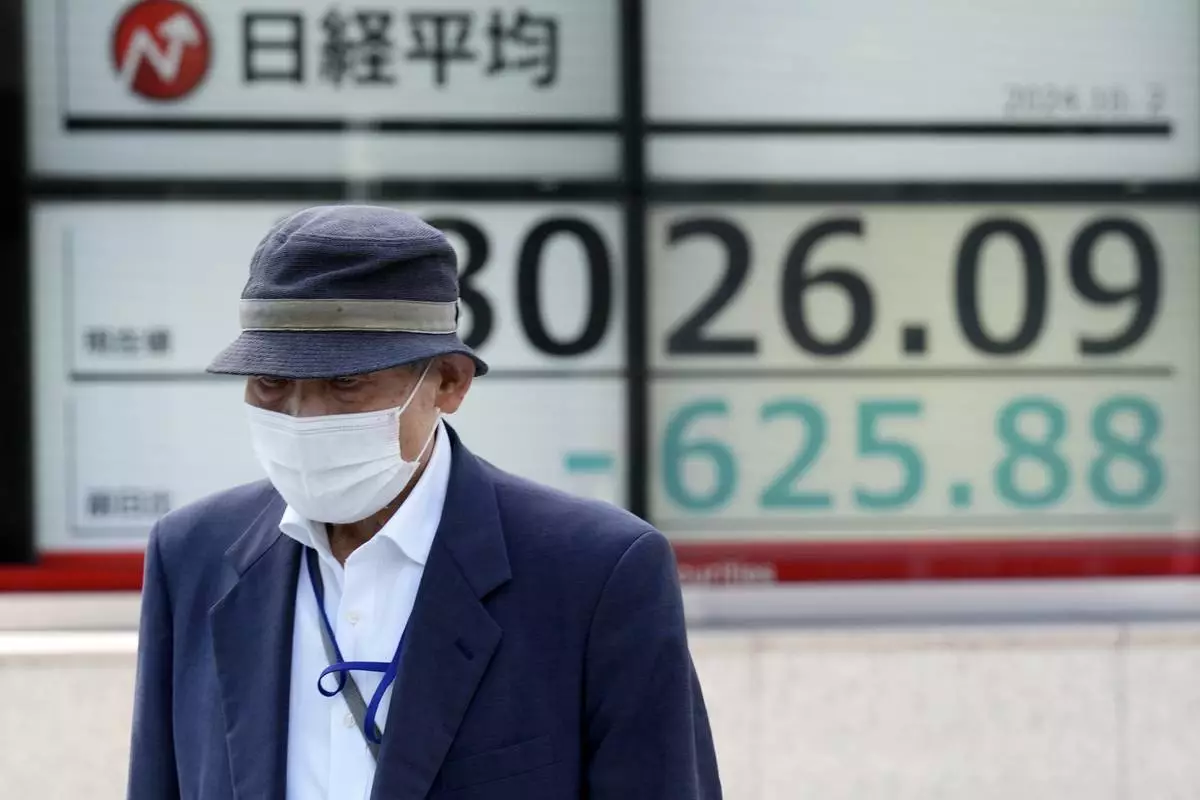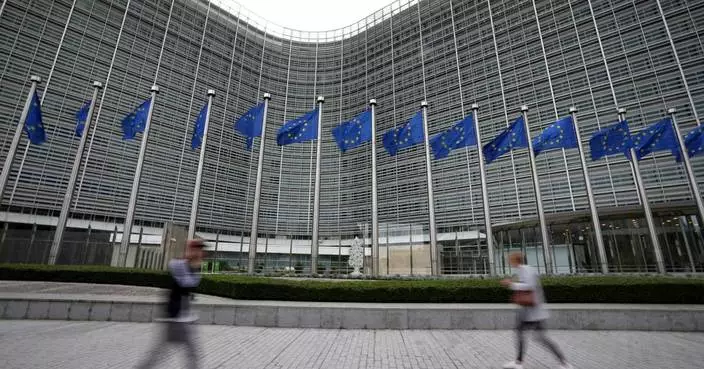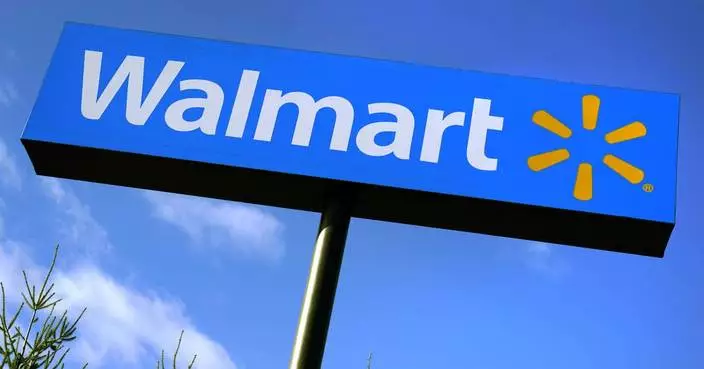JAKARTA, Indonesia (AP) — A growing number of governments, international trade organizations and businesses are urging the European Union to reconsider a deforestation regulation set to take effect in December.
Critics of the regulation say it will discriminate against countries with forest resources and hurt their exports. Supporters of the EU Deforestation Regulation, EUDR for short, say it will help combat forest degradation on a global scale.
Several commodity associations have said they support the objectives of the regulation but that gaps in its implementation could harm their businesses.
Environmental organizations have voiced support, saying the EUDR will help slow global deforestation, which is the second-biggest source of carbon emissions after fossil fuels.
Here's a look at the EU Deforestation Regulation:
Currently scheduled to go into effect on Dec. 30, the EU Deforestation Regulation will outlaw the sale of forest-derived products within the 27-nation bloc if companies can’t prove their goods are not linked to deforestation. Its scope is wide, including cocoa, coffee, soy, cattle, palm oil, rubber, wood and products derived from these commodities.
To sell those products in Europe, big companies will have to prove they come from land where forests haven’t been cut since Jan. 1, 2021, regardless of whether the deforestation was legal in the countries of origin. Small businesses further down the supply chain are subject to the same obligations and retain legal responsibility if regulations are violated. But they are not liable for due diligence for parts of their products that were already subject to review.
Failure to comply can result in financial penalties and restricted access to the EU market.
The regulation also introduces a benchmarking system that ranks countries or regions based on the risk of non-compliance with the EUDR in three categories: low, standard, or high.
“We have been working very closely with a whole range of stakeholders in order to help them prepare for the entry into effect of the regulation,” European Commission spokesperson Adalbert Jahnz said at a recent press briefing in Brussels.
“We keep the situation under constant review. We are working hard to ensure that all the conditions are met for a smooth implementation of the law,” he said.
On Wednesday the EU offered to delay by a year the introduction of new rules that would outlaw the sale of products that come from forests following an outcry from several governments claiming that it will damage trade and hurt small farmers.
The EU’s executive branch, the European Commission, said that “it would make the law applicable on 30 December 2025 for large companies and 30 June 2026 for micro- and small enterprises,” if the 27 member countries and the bloc’s parliament agree.
Officials from leading exporters of affected commodities — including Brazil, Indonesia and the Ivory Coast — object to the regulation, saying it could act as a trade barrier, negatively affect small farmers and disrupt supply chains.
“This regulation disregards local circumstances and capabilities, national legislations, certification mechanisms, their efforts to fight deforestation, and multilateral commitments of producer countries, including the principle of common but differentiated responsibilities,” the Indonesian embassy in Brussels, where the EU is headquartered, said in a statement. Indonesia is the world's largest exporter of palm oil and exports many other forest-derived commodities.
Politicians within the EU have also raised concerns or asked for postponements. German Chancellor Olaf Scholz asked that the regulation be suspended. Austria and some agricultural ministries in EU member states have also sought to weaken the regulation.
The Commission conceded that “the state of preparations amongst stakeholders in Europe is also uneven. While many expect to be ready in time, thanks to intensive preparations, others have expressed concerns.”
The head of the World Trade Organization reportedly has asked Brussels to reconsider the ban on imports from deforested areas, saying the EU has not yet issued clear compliance guidelines.
The World Trade Organization declined a request for comment from The Associated Press.
Lobbying groups representing businesses that will be impacted — such as animal feed and tire producers — have also voiced concerns about the regulation's strict traceability requirements and a flawed information entry and database system where companies need to submit their due diligence statements.
In Brazil — where wildfires have rage d during a record drought — 25 environmental groups voiced their support for the regulations in a letter sent to the president of the European Commission, Ursula von der Leyen, saying companies and government offices were preparing to implement the new requirements.
"This groundbreaking regulation is the most ambitious legislative attempt to tackle these issues worldwide," the Brazilian organizations wrote in their letter. “Every second counts to protect human lives today, as well as humankind’s future, avoid climate change, and stop biodiversity losses.”
The regulation could also help set a precedent for other countries considering legislation that would have a similar effect, said Julian Oram, a policy leader for international environmental organization Mighty Earth.
“It’s a catalyst for governments around the world to say enough is enough: That we can't continue to import or produce goods linked to deforestation, that there has to be a cutoff point— and that is now.”
Associated Press journalist Aniruddha Ghosal in Hanoi contributed to this report.
The Associated Press’ climate and environmental coverage receives financial support from multiple private foundations. AP is solely responsible for all content. Find AP’s standards for working with philanthropies, a list of supporters and funded coverage areas at AP.org.
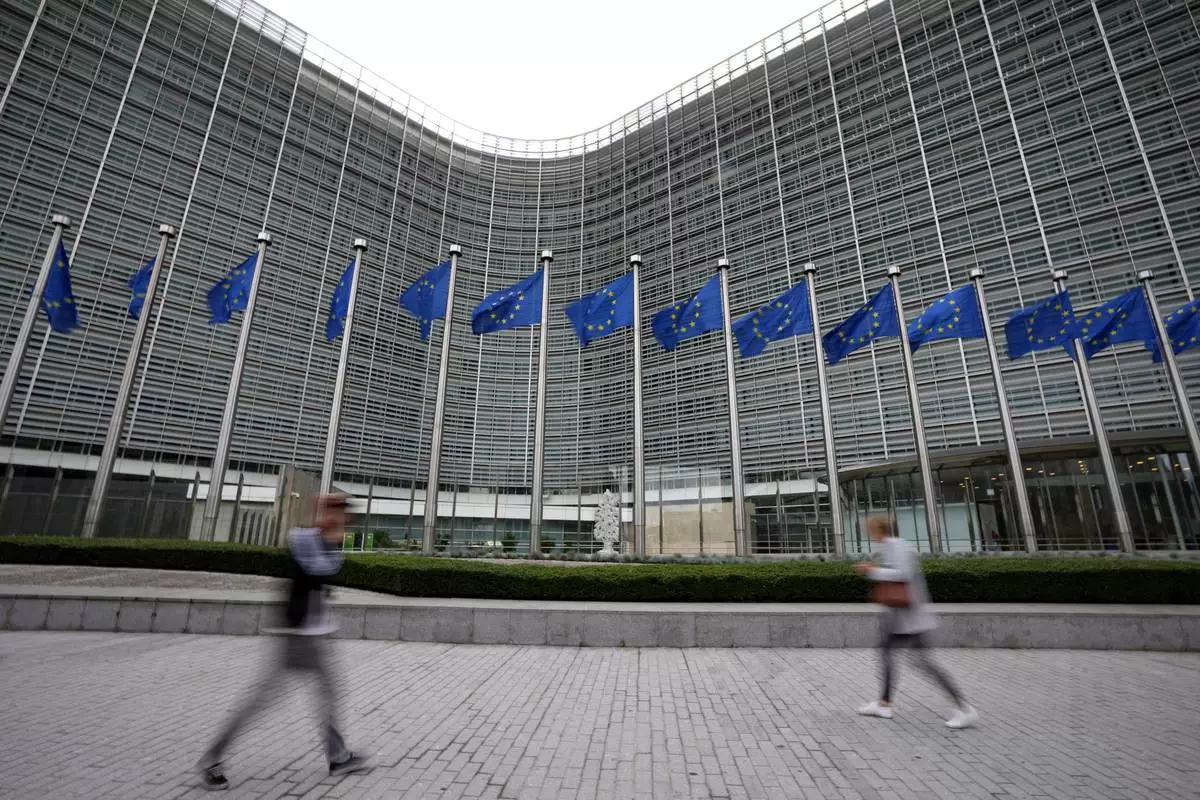
FILE - European Union flags wave in the wind as pedestrians walk by EU headquarters in Brussels, Sept. 20, 2023. (AP Photo/Virginia Mayo, File)
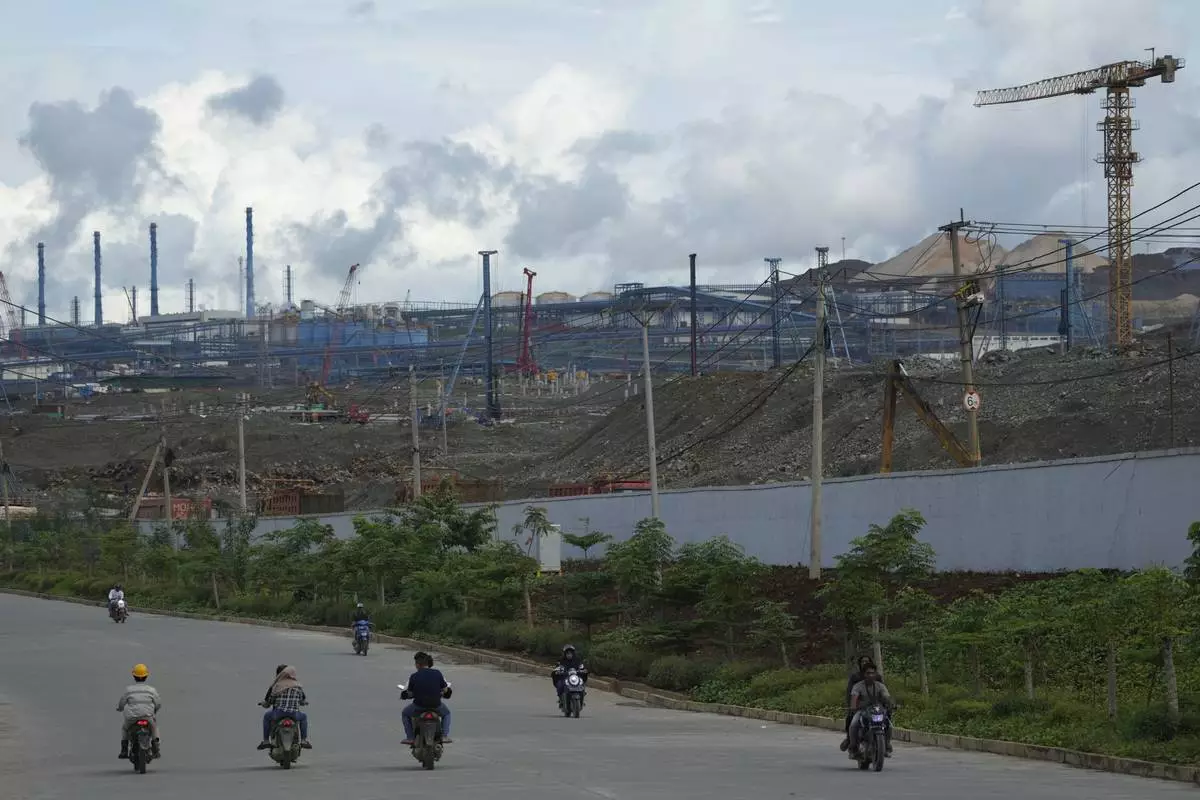
FILE - Motorists ride past Indonesia Weda Bay Industrial Park's compound in Central Halmahera, North Maluku, Indonesia, June 8, 2024. (AP Photo/Achmad Ibrahim, File)
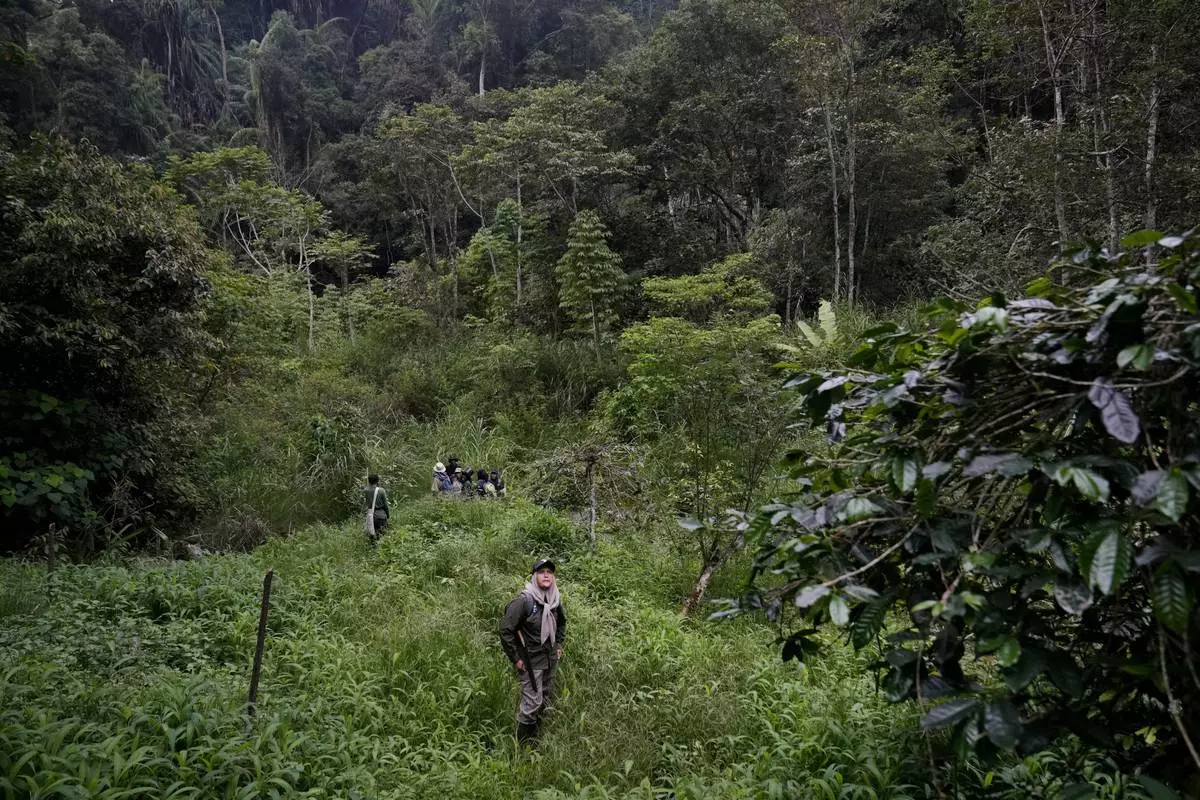
FILE - Lead ranger Sumini takes a break during a forest patrol in Damaran Baru, Aceh province, Indonesia, May 7, 2024. (AP Photo/Dita Alangkara, File)

FILE - People move along a road near the Indonesia Weda Bay Industrial Park in Kulo Jaya, Central Halmahera, North Maluku, Indonesia, June 7, 2024. (AP Photo/Achmad Ibrahim, File)



